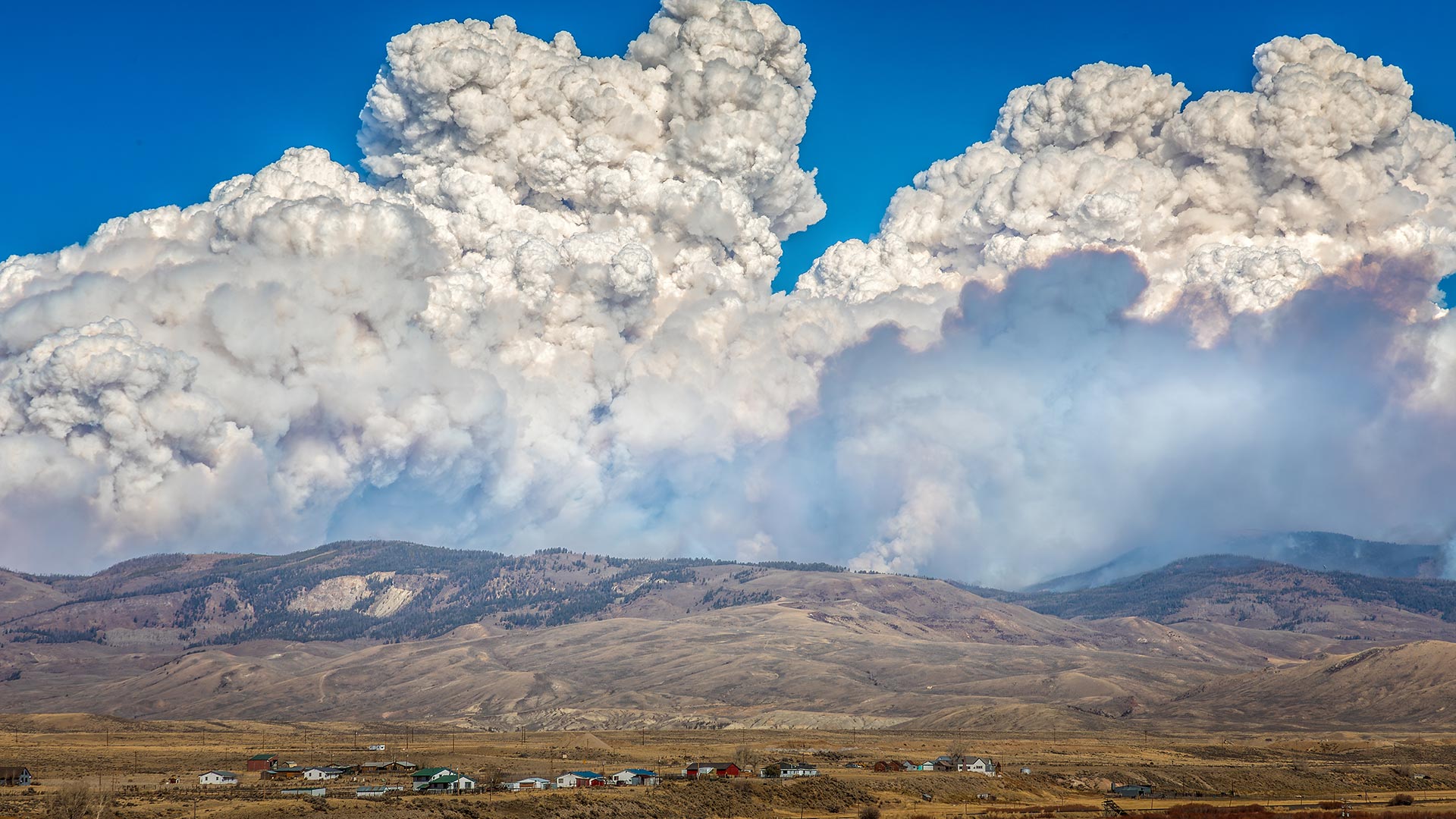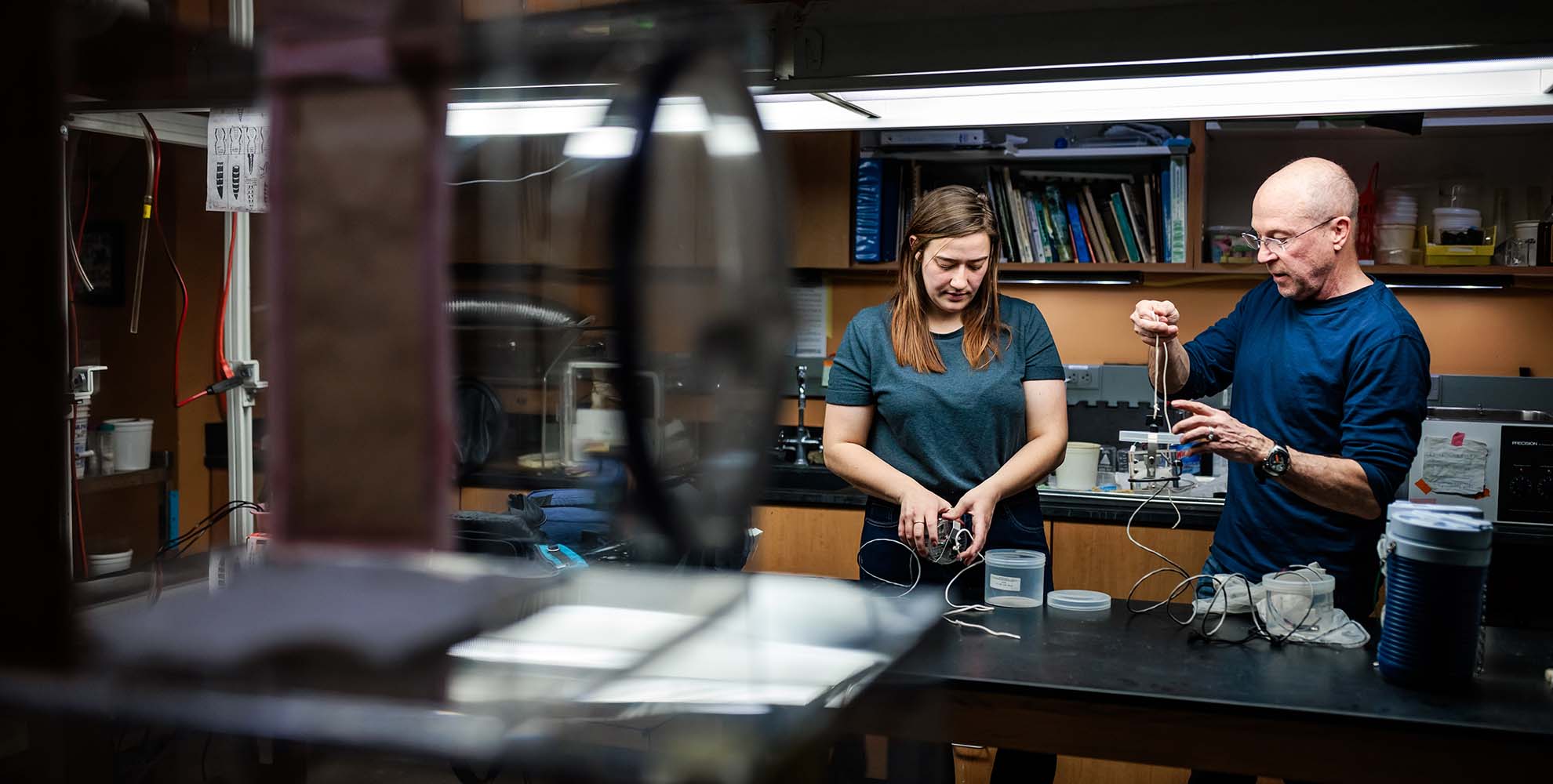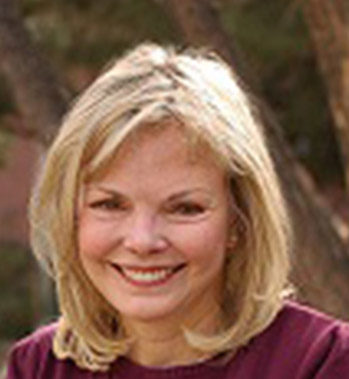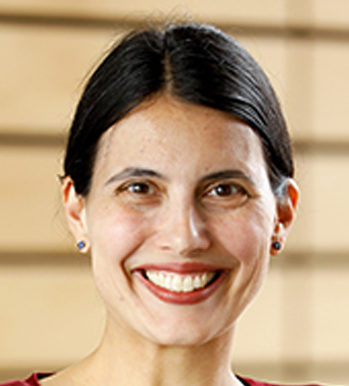Preserving our planet for future generations
Butterfly Pavilion CEO Patrick Tennyson’s commitment to conservation hinges on an unlikely set of heroes: invertebrates.
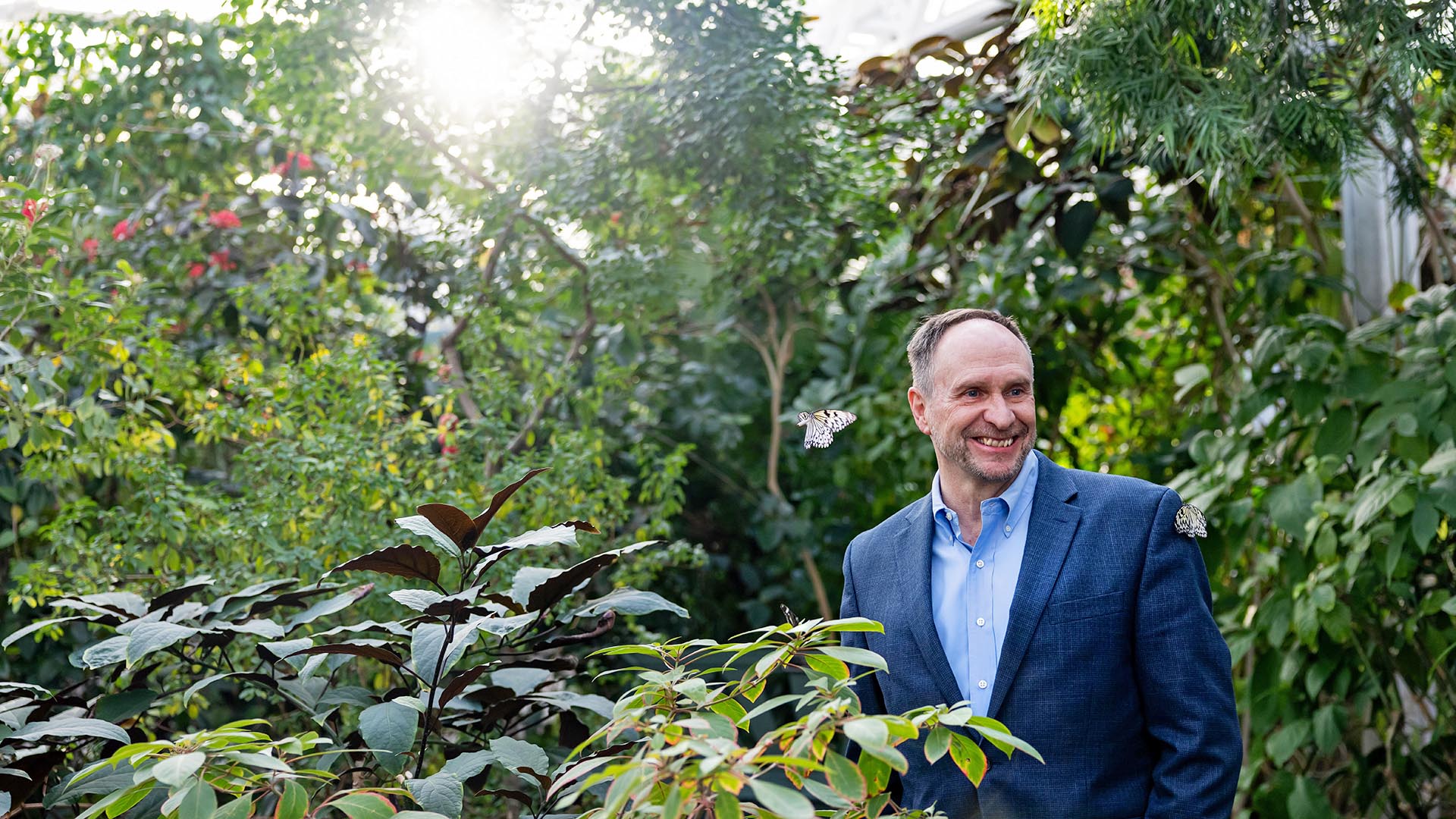
This story appears in the spring 2024 issue of RED Magazine.
Wildlife lovers, here’s some trivia: Invertebrates, which are animals without a spine, account for more than 97% of all living animal species. From insects to jellyfish to sea urchins, these often-overlooked animals are everywhere and too abundant to ignore.
Patrick Tennyson, president and CEO of Butterfly Pavilion in Westminster, said invertebrates play a pivotal role in nature and are essential to our survival.
“Their unique ability to thrive in extreme conditions and contribute to ecosystems’ balance holds an untapped potential for solving a multitude of environmental challenges that humanity faces,” he said.
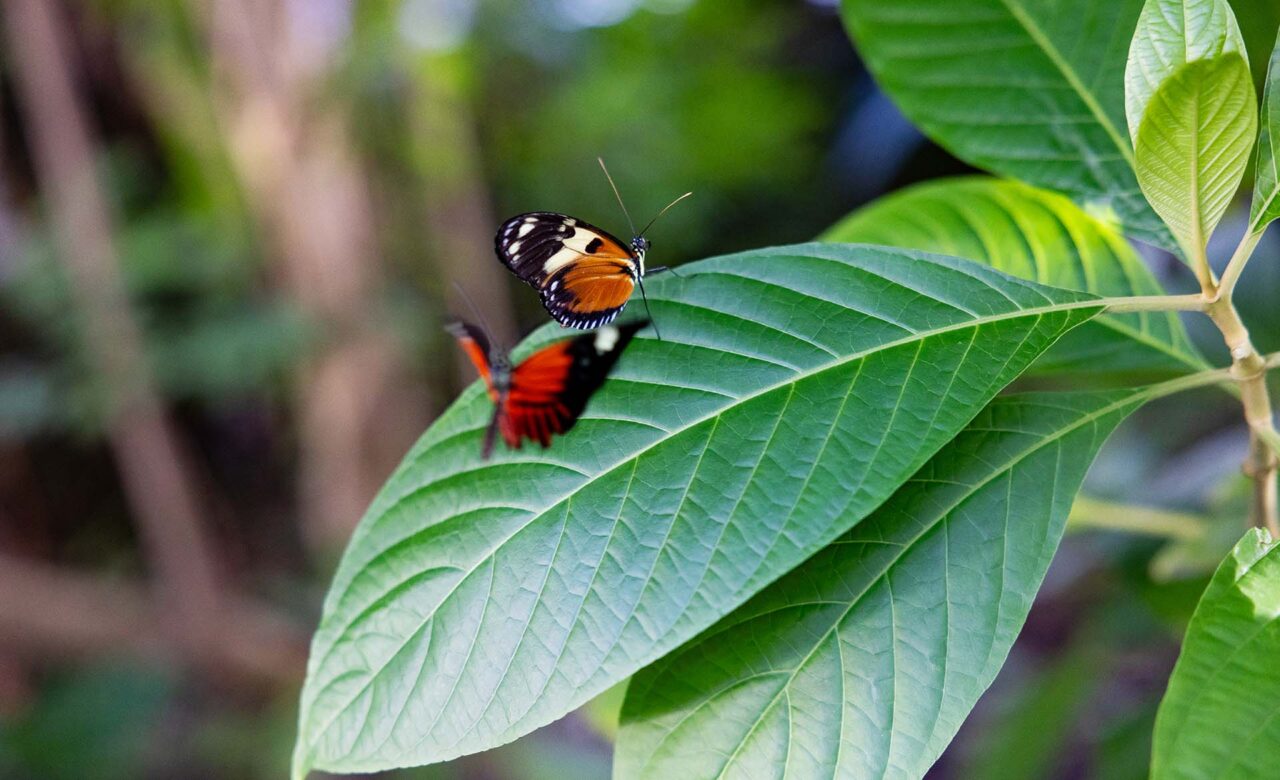
Tennyson would know. He has dedicated his career to environmental conservation. He earned his B.S. in Biology with a Zoology emphasis from Metropolitan State University of Denver in 1995. He has worked as an interpretive naturalist and adult education program manager and has spent over 30 years in leadership, administration and strategic planning roles. That includes eight years on the board of the Colorado Alliance for Environmental Education and more than 12 years of service on the Broomfield Open Space and Trails Advisory Committee.
This past year, he won the 2023 Conservation Award from the philanthropic nonprofit Westminster Legacy Foundation, highlighting his commitment to conservation locally and around the world.
It’s a fitting honor for someone who has been involved in environmental education and conservation for more than 38 years. “Ever since I was a child, I have been fascinated by zoology and the depth of richness of life on our planet,” he said.
Spreading his wings
Tennyson’s work at Butterfly Pavilion has further fueled his commitment to preserving the environment for generations to come. He expressed pride that Butterfly Pavilion embraces a collaborative approach, helping to solve problems at a fundamental level.
Unfortunately, environmental concerns are widespread in Colorado. “Issues such as water scarcity, habitat loss, wildfire management and climate change resilience are very concerning topics,” Tennyson said.
RELATED: Far from the ocean, a Colorado biologist works to save coral reefs
How does a butterfly conservatory impact environmental conservation? Tennyson points to the concept of “a zoo within a zoo.” This, he said, underscores the significance of native insect habitats within larger animal habitats in zoo settings.
“Understanding and nurturing these microhabitats is vital,” he said. “They support local biodiversity, contribute to ecosystem health and educate the public about the interconnectedness of all life forms.”
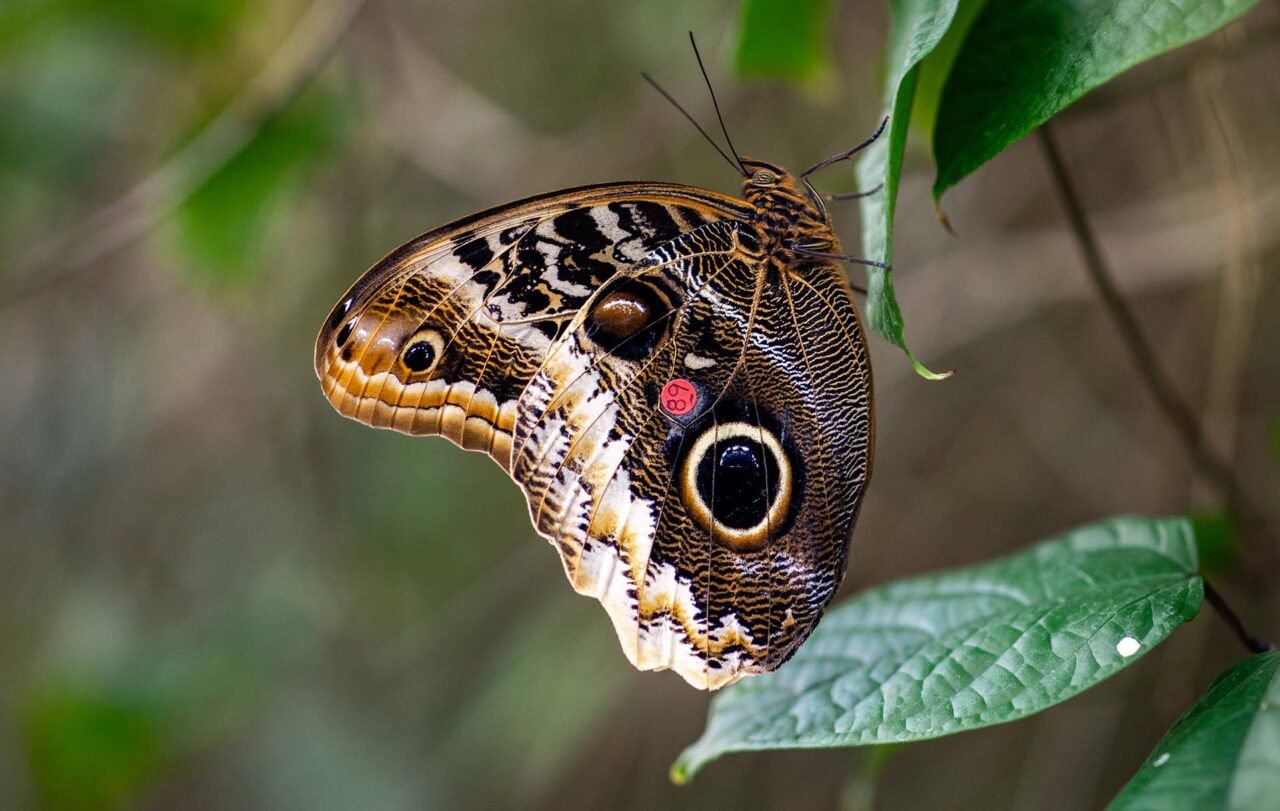
Conservation education
While our spines set us apart from mollusks and earthworms, the fact that we coexist on the same planet is no small matter. Understanding and preserving this biodiversity is critical to preserving our planet for future generations — especially for people interested in careers in environmentalism or conservation.
“Pursuing an education in these fields equips individuals to make meaningful contributions to safeguarding our natural world,” Tennyson said.
RELATED: Saving the world (one street at a time)
Nearly three decades after graduating from MSU Denver, Tennyson called his educational experience at the University “incredibly formative.”
“The institution’s emphasis on hands-on learning and its proximity to diverse Colorado ecosystems provided ample opportunities for practical, field-based experiences,” he said.
His advice to aspiring zoologists or wildlife biologists is to immerse themselves in fieldwork, internships and research opportunities to gain a holistic understanding of the field. And he encouraged them to stop at nothing because the environment deserves passionate leaders.
After all, conservation work is more important than ever. “Environmentalism and conservation aren’t just careers,” Tennyson said. “They’re commitments to preserving our planet for future generations.”


